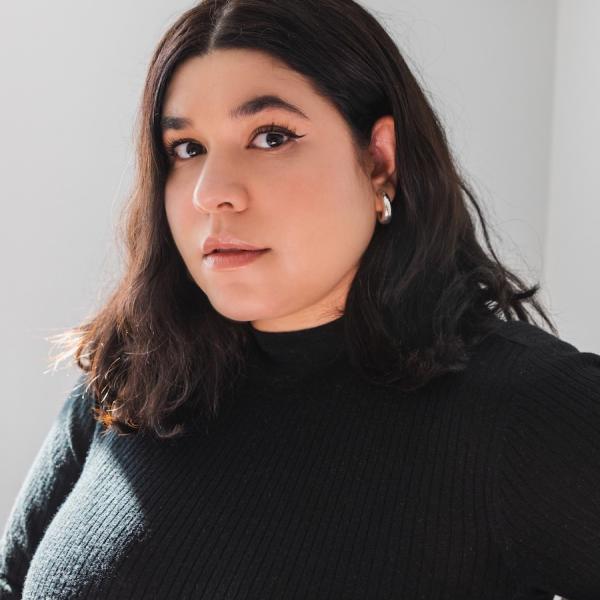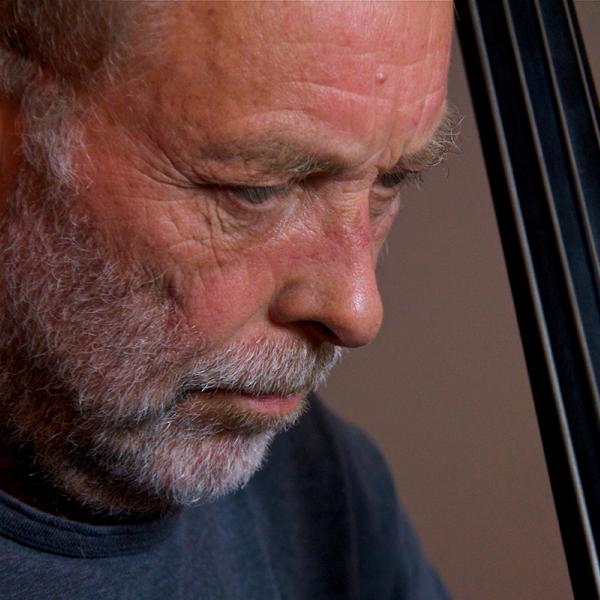Natalie Merchant

Transcript of conversation with Natalie Merchant
Music up
Jo Reed: That was songwriter Natalie Merchant singing "Calico Cat", it’s from her double CD Leave Your Sleep. Welcome to Art Works, the program that goes behind the scenes with some of the nation's great artists to explore how art works. I'm your host Josephine Reed. This week poetry is on everyone’s mind, we just saw the national finals for the 2012 Poetry Out Loud Competition. A partnership of the NEA, the Poetry Foundation, and the State Arts Agencies, the Poetry Out Loud competition encourages high school students to to learn about great poetry through memorization, interpretation, and recitation.Out of a field of 365,000 students, Kristen Dupard, a high school senior from Mississippi, won the 2012 Poetry Out Loud competition. Dupard was among nine finalists and 53 state champions who competed in the seventh annual national poetry recitation contest at the Harman Center for the Arts. So, what does this have to do with singer/songwriter Natalie Merchant, formerly of the indie rock group 10,000 maniacs? The answer is plenty. Natalie Merchant served as a judge for the NY State pol competition in 2009, and she performed at the Poetry Out Loud National Finals in Washington DC that same year. She’s also spent six years working on a project that set 19th and 20th century American and British poems about childhood to music. Using the text from poets as disparate as Edward Lear, Mother Goose, Gerard Manley Hopkins, Christina Rossetti and Robert Louis Stevenson, to name a few, Merchant composed the music for 26 songs using the poetry as her lyrics and inspiration. The result was a two-CD set called Leave Your Sleep. I spoke with Natalie Merchant a couple of years back, when she has just finished recording Leave Your Sleep. We had used parts of the interview on the art works blog, but we had never released the whole interview. So, in this week of the POL finals, we reach into the archives to give you Natalie Merchant speaking candidly about poetry and the poems and the music that would become Leave Your Sleep. I spoke with Natalie back stage right after the rehearsal for her performance at the POL national finals. Given the setting, it seemed only appropriate to d begin by asking her about her involvement with Poetry Out Loud.
Jo Reed: Natalie, you were a judge for the New York State Poetry Out Loud competition.
Natalie Merchant: That I was.
Jo Reed: How did that happen?
Natalie Merchant: Well, I was aware of the competition but serendipitously I guess got a random phone call from the New York State Alliance for the Arts and they just asked if I was interested. We called them back immediately because I had been to the web site for Poetry Out Loud and was really impressed by what I saw, kids' performances. Their recitations just blew me away. All of them had something inspirational in their performances. Something was illuminated in every poem by them. I really shoehorned my way into this event because not only am I a huge fan of the event. It just coincided perfectly with what I'm doing and I wrote to John Barr, who is the president of the Poetry Foundation, and told him that I have the same mission that he does. What I wanted to do with this project that I've been working on for the last five years was take existing text and put it to music. A lot of the poets that I chose were British Victorians, early twentieth-century American, some mid twentieth century, only two living poets, and that's something that they're encouraging is for kids to get a historical perspective on poetry and poets. And I wanted to make a really vibrant living anthology of poetry because I never really considered myself a poet but I thought of myself as a lyricist but it's basically pretty much the same thing. I write words to be accompanied by music but I definitely write verses that stand alone as poetry. Gavin Bryars, contemporary British composer-- he's a friend of mine -- the Royal Shakespeare Company was going to do the complete works of Shakespeare. I had begun doing some poetry but mostly children's poetry, lullabies and doing research mostly on children's poetry, and he asked me to put a sonnet to music and I put the 73rd to music. I have to admit never read the sonnets. At least I had read them in high school but not all of them, and I sat and read them all and I was struck by how this man who lived in the sixteenth century and I had so much in common about the way we looked at our experience of life, love, loss, yearning, disillusionment. So many of the constant themes of life and just the human experience have not changed all these hundreds of years, and there was one line in the sonnet, "bare ruined choirs /where late the sweet birds sang/in me thou seest the twilight of such a day." And when I put it to music it elevated it to me because it's difficult for me to recite poetry so it was, "Bare ruined choirs where late the sweet birds sang. In me thou seest the twilight of such a day." It was almost like my understanding of all the poetry became deeper when I put it to music because I gave it an emotional quality that resonated in me and it was like a reflection of what the poetry made me feel and made it really personal. I internalized it and that was a kind of transformational aspect of the whole process was to take this poetry that was just - to many people is just dead words on page and lift it up out of obscurity, and I'm not saying that Shakespeare sonnets are obscure but they were obscure in my life until I did that project.
Jo Reed: It's that engagement I think and I think that's what the students do as well. It's why we say we learn something by heart because it really isn't just about the memorization. It's by heart because there is a way you have to take it in to your heart to be able to give it back.
Natalie Merchant: That's another point. If a poem is successfully recited you’ve stepped into somebody else’s skin. The poet asks you, "See what I saw. Feel what I felt. Hear what I’ve heard. Think what I’ve thought." And that’s a very empathetic experience for us to have. I think that’s why poetry enriches us. Poetry can take common everyday language and hold it up in front of a light so you look at it in a completely different way.
Jo Reed: When you were younger did you like poetry? Did you have a relationship with poetry? Or was that something you came to as you got older?
Natalie Merchant: I wrote more poetry than I read and this might be true of a lot of young people Probably because free verse was liberating. I think in school you're just forced to do so much writing of prose that it really freed me up, there are no rules, no structural rules in free verse. And I found that really stimulating but then I became a lyricist and that's like becoming a master puzzle maker because you're confined by the meter of the music and your rhyme scheme only makes sense when you apply it within the framework, and it's a very constrictive process, writing lyrics.
Jo Reed: Do you ever think about writing poetry, which isn't to say your lyrics are not poetical, but the music makes them complete.
Natalie Merchant: Uh huh.
Jo Reed: Do you ever think about just doing poetry?
Natalie Merchant: I have done a lot of writing but I prefer, to me it's a more complete art form to make the music. Obviously, I've now done it to other people's poetry. I like doing it to my own poetry. I want to do it to everybody's poetry. If you're asking me if I'll publish a book of poems, most likely not. I'll just continue writing words and putting them to music.
Jo Reed: Well, for which we're grateful I might add.
Natalie Merchant: Thank you.
Jo Reed: You mentioned broadly the poetry that you've set to music. Can you give us a couple of examples? I won't ask you about the living poets 'cause that might be awkward.
Natalie Merchant: Well, as far as the British, Victorians, Christina Rossetti, "The Land of Nod by Robert Louis Stevenson."
Jo Reed: Apparently he was a very sick child. So when I was sick my mother would always bring "A Child's Garden of Verses" and Robert Louis Stevenson's poetry because her feeling was he was sick; you're sick. Read his poetry and you'll feel better but it gave him such a place in my heart.
Natalie Merchant: I lived in Hawaii for years and over the years and Robert Louis Stevenson on his doctor's advice in the last years of his life lived in the tropics in the South Seas and he spent time in Hawaii and on the island of Molokai, which was the place where the lepers were sent, exiled, taken from their families and exiled on this barren portion of Molokai. And he went to visit the leper colony and he was so disturbed by the conditions that they were living under that he bought them a piano. He just felt that there was so much sadness these people knew. He had such luminescent eyes and I love Robert Louis Stevenson's face, but that poem is -- "From breakfast all through the day at home among my friends I stay but every night I go abroad in to the far-off land of Nod. All by myself I must go, no one to tell me what to do, all alone beside the streams and up the mountainsides of dreams." It's enchanting.
Music up
Natalie Merchant: So what else did I do? Edward Lear of course. "Calico Pie" is what I chose and I- something that I did really interesting with the songs is I decided to do every song in a different style of music, which was a logistical nightmare.
Jo Reed: I would think.
Natalie Merchant: We had 120 musicians' work but one day we'd have -- "Calico Pie" I did in a bluegrass style.
Music up
Christina Rossetti I had Lunasa, which is the preeminent Irish traditional band, came over from Dublin and did a session. We did four songs together. I had klezmer band. I had a Chinese music ensemble so I did "The King of China's Daughter," which is a nursery rhyme. That was something else I did was take very simple -- because I had a child in the last five years and I was looking at juvenile poetry because that's where my life has been for the last few years and it's such a privilege to introduce a new person to language. She's so excited by particular words and the meanings of words and the usages of this diversatility and the utility of language and I wanted to show her language isn't just for giving commands and requests. It's for telling stories and some of the most beautiful stories are told through poetry and memorizing rhymes and it's really a wonderful thing. So "The King of China" started: "The King of China's daughter is so beautiful to see with a face like yellow water left her nutmeg tree. Her little rope for skipping she kissed and gave it me made of painted notes of singing birds among the fields of tea. I skipped across the nutmeg grove, I skipped across the sea, but neither sun nor moon my dear has yet caught me."
Music up
Natalie Merchant: It's surreal poetry.It sounds like a translation of Chinese classical poetry, doesn't it?
Jo Reed: Yeah, it sure does.
Natalie Merchant: I wasn't familiar with that from my childhood. When I was researching poetry I found this Edith Sitwell poem where she incorporated the verses of "King of China's Daughter" in her own poem. I thought "This is amazing, these random associations, and "Man in the Wilderness" I did as well, which is, I did with this group, this young group of Israeli musicians called the Cardamon Quartet and they do this kind of Sephardic tango music. It's a cello, a clarinet, an accordion, and then we had an acoustic guitar and percussion so every day was a new experience. We had early music consort. We had theorbo, lute, recorder, viola de gamba. We did "Sleepy Giant."I ended up writing 45 of these songs and we recorded 30 of them.
Jo Reed: Wow.
Natalie Merchant: So it's a huge volume of work and Nonesuch Records is putting them out.
Jo Reed: Sounds like something your daughter is just going to treasure.
Natalie Merchant: I wanted to have a legacy. I wanted to have my Sound of Music or my Alice in Wonderland or just a sophisticated -- that's what I set out to do originally was make an anthology of poetry that lives for children but as I got deeper in to it I wasn't just satisfied with poetry for children. I started a Gerard Manley Hopkins poem, "Spring and Fall." He was a Jesuit poet from the 1800s. A friend of mine is a professor of literature at Bard College. When I told her I was working on this project she said, "You have to put this to music," and the first time I read it, "Margaret, are you grieving over Goldengrove unleaving?" I just burst into tears and I didn't know exactly why. And I read the poem probably ten times and I felt it really deeply until I didn't understand really what I was reading. That's pretty mystical I think with poetry that you can feel it but not be aware of why you're feeling it. But the last line: "It's the blight we were born for. It is Margaret that you mourn for" slays me.
Music Up:
That was singer/songwriter/ poetry lover Natalie Merchant. You've been listening to artworks produced at the National Endowment for the Arts. Adam Kampe is the musical supervisor.
Excerpts from the following songs are from Natalie Merchant’s CD Leave Your Sleep; she composed the music and performed the songs:
The Man in the Wilderness, Anonymous
The Land of Nod text by Robert Louis Stevenson
Calico Pie text by Edward Lear
The King of China's Daughter, Anonymous
Spring and Fall: To a Young Child text by Gerard Manley Hopkins
All used courtesy of Natalie Merchant and Nonesuch Records.
The Art Works podcast is posted every Thursday at www.arts.gov. And now you subscribe to Art Works at iTunes U—just click on the iTunes link on our podcast page.
Next week, we mark Memorial Day with a conversation with Melissa Walker….she developed the healing arts program for veterans at the National Intrepid Center of Excellence at the Walter Reed Medical Center
To find out how art works in communities across the country, keep checking the Art Works blog, or follow us @NEAARTS on Twitter.
For the National Endowment for the Arts, I'm Josephine Reed. Thanks for listening.
Natalie Merchant discusses her love of poetry.




